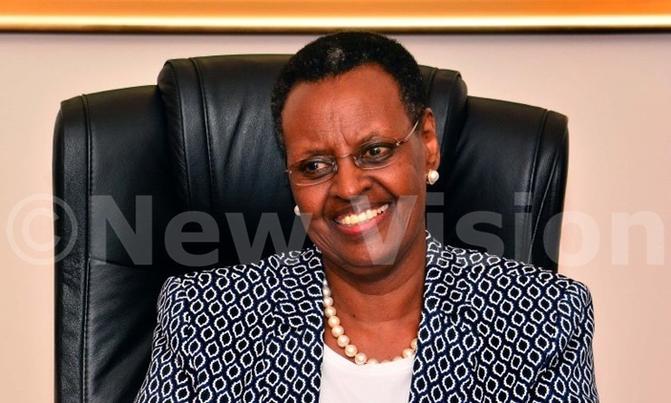Africa-Press – Uganda. When budgets for sectors are passed, one is always never sure all the monies will be availed by the central government.
But for the case of the education sector, in the previous year, the budget release for the FY 2019/20 performed at 99.07%. A total of 3,052.59bn was released out of the total sector approved budget of sh3,081.35bn excluding external financing.
More so, the approved recurrent wage budget was sh17.81bn, and the release performed at 100%.
The approved non-wage recurrent budget was sh234.87bn, out of which sh231.77bn (98.68%) was released and sh219.25bn (94.60%) of the release was spent.
All these details are part of the 2019/2020 Education and Sports Sector Performance Report, which was released Wednesday morning, during the sector review performance at Hotel Africa and also virtually at State House in Entebbe.
Did it count?
The First Lady and minister of education Janet Museveni, during the manifesto week this year, assured the nation that the sector had done well in the previous years. She said that the education sector has done an excellent job, in implementing the National Resistance Movement manifesto (2016-2021).
She explained that considering the budget constraints and limited human resource capacity, the education sector’s performance is commendable.
“We have excelled in our accomplishments; considering the size of the assignments and the low budget availed to us. We could have done better if we had the personnel we need. The government reduced the recruitment process because of budgetary constraints,” she explained.
Currently, the primary sub-sector is gravely understaffed and required about 20,000 teachers. The sector is also in dire need of more science teachers.
“If our budget and human resource were better, we would have done a far better job,” the First Lady said.
The First Lady explained that the education sector, in the last four years has hired 8,300 new additional teachers. More so, 2,000 teachers are in the process of being hired. But, there is a long way to go, in having the required teachers.
Her view on the great performance was also supported by the Director of the Manifesto Implementation Unit Willis Bashaasha who said that the education sector’s performance in their assessment, is at 78% compared to the entire Government rating which is at 80%.
“Truly, this is an excellent job done. We have been to the field and we can attest to this fact.”
The overall mandate of the Manifesto Implementation Unit is to monitor the progress of implementation of the manifesto commitments and report to the presidency and the other government entities accordingly. The unit also liaises with the ruling party National Resistance Movement in the promotion of the party.
“We know that there are still a number of challenges, but considering the resources they were availed, they have managed to fulfil 93 of the 119 commitments that were made by this Government when campaigning,” Bashaasha added.
“Owing to the fact that there is time, before the elapsing of the five years of the social contract that Government has with the people through elections, we are confident that the education sector’s rating will even go higher than 78%.”
More so, over the years, Budget Annual Monitoring reports in the last four years, by the Ministry of Finance, Planning and Economic Development have always scored the education and sports sector between 78% to 85%.
The First Lady also admits that there are still challenges, which need to be resolved in the sector. She cites the high pupil to teacher ratio, caused by inadequate teachers, yet the population is going up.
She is also concerned about the inadequate resources amidst spending pressures.
“With limited resources, timely grant-aiding is not done; there are few teachers for primary and science teachers in secondary, and the delayed completion of physical structures around the country.”
“There is also a need to raise community participation in the education of our children and the need to end teacher absenteeism,” she said.






